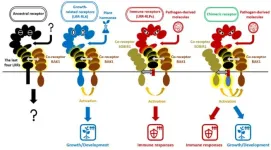In a large population study conducted in Canada, the risk of dementia was nearly 3 times higher in the first year after a stroke, then fell to a 1.5-times increased risk by the 5-year mark and remained elevated 20 years later. Having a stroke increased the risk of dementia by 80%, even after accounting for other dementia risk factors, such as high blood pressure, Type 1 or Type 2 diabetes and high cholesterol. Embargoed until 4 a.m. CT/5 a.m. ET, Thursday, Feb. 1, 2024
DALLAS, Feb. 1, 2024 — Having a stroke may significantly increase the risk of developing dementia. The risk of dementia was the highest in the first year after a stroke and remained elevated over a period of twenty years, according to preliminary research to be presented at the American Stroke Association’s International Stroke Conference 2024. The meeting will be held in Phoenix, Feb. 7-9, and is a world premier meeting for researchers and clinicians dedicated to the science of stroke and brain health.
“Our findings show that stroke survivors are uniquely susceptible to dementia, and the risk can be up to 3 times higher in the first year after a stroke. While the risk decreases over time, it remains elevated over the long-term,” said lead study author Raed Joundi, M.D., D.Phil., an assistant professor at McMaster University in Hamilton, Ontario, Canada, and an investigator at the Population Health Research Institute, a joint institute of McMaster University and Hamilton Health Sciences.
To evaluate dementia risk after stroke, the researchers used databases at the Institute for Clinical Evaluative Sciences (University of Toronto, Canada), which includes more than 15 million people in the Canadian province of Ontario. They identified 180,940 people who had suffered a recent stroke — either an ischemic stroke (clot-caused) or intracerebral hemorrhage (bleeding within the brain) — and matched those stroke survivors to two control groups — people in the general population (who had not had a heart attack or stroke) and those who had had a heart attack and not a stroke. Researchers evaluated the rate of new cases of dementia starting at 90 days after stroke over an average follow-up of 5.5 years. In addition, they analyzed the risk of developing dementia in the first year after the stroke and over time, up to 20 years.
The study found:
The risk of dementia was highest in the first year after stroke, with a nearly 3-fold increased risk, then decreasing to a 1.5-fold increased risk by the 5-year mark and remaining elevated 20 years later. Dementia occurred in nearly 19% of stroke survivors over an average follow-up of 5.5 years. The risk of dementia was 80% higher in stroke survivors than in the matched group from the general population. The risk of dementia was also nearly 80% higher in stroke survivors than in the matched control group who had experienced a heart attack. The risk of dementia in people who had an intracerebral hemorrhage (bleeding in the brain) was nearly 150% higher than those in the general population. “We found that the rate of post-stroke dementia was higher than the rate of recurrent stroke over the same time period,” Joundi said. “Stroke injures the brain including areas critical for cognitive function, which can impact day-to-day functioning. Some people go on to have a recurrent stroke, which increases the risk of dementia even further, and others may experience a progressive cognitive decline similar to a neurodegenerative condition.”
Each year, about 795,000 people experience a new or recurrent stroke. Approximately 610,000 of these are first attacks, and 185,000 are recurrent attacks, according to the American Heart Association’s Heart Disease and Stroke Statistics 2024 Update. According to the CDC, of those at least 65 years of age, there is an estimated 7 million adults with dementia in 2014 and projected to be nearly 14 million by 2060.
“Our study shows there is a large burden of dementia after acute stroke in Canada and identifies it is a common problem that needs to be addressed. Our findings reinforce the importance of monitoring people with stroke for cognitive decline, instituting appropriate treatments to address vascular risk factors and prevent recurrent stroke, and encouraging lifestyle changes, such as smoking cessation and increased physical activity, which have many benefits and may reduce the risk of dementia,” Joundi said. “More research is needed to clarify why some people who have a stroke develop dementia and others do not.”
A 2023 American Heart Association scientific statement, Cognitive Impairment After Ischemic and Hemorrhagic Stroke suggests post-stroke screenings and comprehensive interdisciplinary care to support stroke survivors with cognitive impairment.
A limitation of the study is that administrative data, hospital records and medication dispensary data were used for the analysis. Researchers were not able to perform cognitive assessments or neuroimaging (noninvasive images of the brain) on stroke survivors, therefore, there is no way to confirm the dementia diagnosis or type of dementia. However, the dementia definition was previously validated and shown to be accurate when compared to medical charts.
Study background and details:
The study examined data from 2002 to 2022 on a total population of 15 million adults in Ontario, Canada. Data was mined from all hospital admissions, pharmacies prescribing medications for dementia and emergency departments across the province of Ontario. The analysis included 180,940 stroke survivors (mean age of 69, and 45% women) who had either an ischemic stroke or intracerebral hemorrhage and survived without dementia for at least 90 days. The study population was matched 1 to 1 on age, sex, rural residence, neighborhood marginalization, hypertension, diabetes (including Type 1 and Type 2 together), high cholesterol, atrial fibrillation, heart failure and peripheral artery disease — factors known to increase the risk of dementia. Co-authors, disclosures and funding sources are listed in the abstract. The study was supported by Brain Canada, the Heart and Stroke Foundation of Canada and the Canadian Stroke Consortium.
Statements and conclusions of studies that are presented at the American Heart Association’s scientific meetings are solely those of the study authors and do not necessarily reflect the Association’s policy or position. The Association makes no representation or guarantee as to their accuracy or reliability. Abstracts presented at the Association’s scientific meetings are not peer-reviewed, rather, they are curated by independent review panels and are considered based on the potential to add to the diversity of scientific issues and views discussed at the meeting. The findings are considered preliminary until published as a full manuscript in a peer-reviewed scientific journal.
The Association receives funding primarily from individuals; foundations and corporations (including pharmaceutical, device manufacturers and other companies) also make donations and fund specific Association programs and events. The Association has strict policies to prevent these relationships from influencing the science content. Revenues from pharmaceutical and biotech companies, device manufacturers and health insurance providers and the Association’s overall financial information are available here.
Additional Resources:
Multimedia is available on the right column of the release link After Feb. 1, view abstract 67 in the ASA International Stroke Conference 2024 Online Program Planner AHA Scientific Statement: Cognitive impairment after stroke is common, and early diagnosis and treatment needed (May 2023) AHA news release: Lowering blood pressure significantly reduced dementia risk in people with hypertension (Nov. 2023) AHA news release: Earlier onset of high blood pressure affects brain structure, may increase dementia risk (Oct. 2021) AHA news release: Risk of dementia rises significantly with severity and number of strokes (March 2021) For more news at ASA International Stroke Conference 2024, follow us on X (formerly known as Twitter) @HeartNews #ISC24
###
About the American Stroke Association
The American Stroke Association is devoted to saving people from stroke — the No. 2 cause of death in the world and a leading cause of serious disability. We team with millions of volunteers to fund innovative research, fight for stronger public health policies and provide lifesaving tools and information to prevent and treat stroke. The Dallas-based association officially launched in 1998 as a division of the American Heart Association. To learn more or to get involved, call 1-888-4STROKE or visit stroke.org. Follow us on Facebook and X.
END


